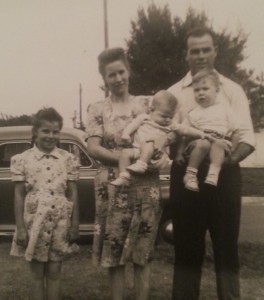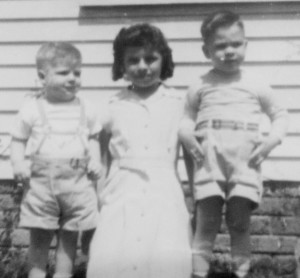Connecting the two words Train and Track evokes images. Linked-up railway cars snaking over a mountain pass or across a sun-beaten desert or through a city’s colorless industrial park.
I was born the fourth child of Clyde Baxter Lout, whose own entry into the world in 1912 followed another birthday by just five years – that of his native Oklahoma – into Statehood.
While both of them, Clyde and Oklahoma, were in their youth assaulted by merciless dust storms and drought, it was only Clyde who could escape the brutal territory, at least for a time. He gathered the few clothing items he could take along to bum his way westward and headed for the nearest rail yard. To one train track, then to another, and another. With each morning’s sunrise to his back he pressed on, riding the rails to a place near Berkeley.
Yet, as he would come to find, that same pair of ‘T’ words, train. . . track, would impact Clyde’s life in a very different kind of way. His gaze was to shift, from squinting along railway lines by the mile to engaging a vision of life itself. He would elect to think deeply, to ponder, to purpose, and – with some help from “the good Lord above” – to even prosper.
Clyde was poor, very poor. With some sort of actual training and a few sensible means to mark out his progress, the young Okie figured he might break past the survival mindset (a condition pretty much defining his whole life) and arrive at an improved state of being.
Certainly, any advancement would beat hoeing cotton at 50 cents a week. But he wouldn’t want that as his grand aim, to merely get out of poverty. He took hold of a notion, teasing him from somewhere inside or outside himself, that he could aim for something loftier than bare survival. Still, he knew that dreaming alone would not get him there. He would have to do some things, two things especially.
Clyde must train. Clyde must stay on track.
Train and Track. In union together, like bonded friends, the two curious elements could make all the difference, helping propel the orphan-boy-turned-adult beyond a life of scarcity and into one of plenty. To material well-being indeed, but maybe to an abundance far greater, a life of riches not measured in coin.
Clyde’s future lay before him. He must choose.
So must we.
©2018 Jerry Lout



